Anthropology Club Meetings 2015-2016
May 11th, 2016
Dorota Nowak-Baranowska & Bartek Baranowski
Where is situated the one and only Lyuli school in the world? What does „harsit” mean? How Hindu, Taj]ik and Islamic traditions coexist in Gypsies societies in Central Asia?
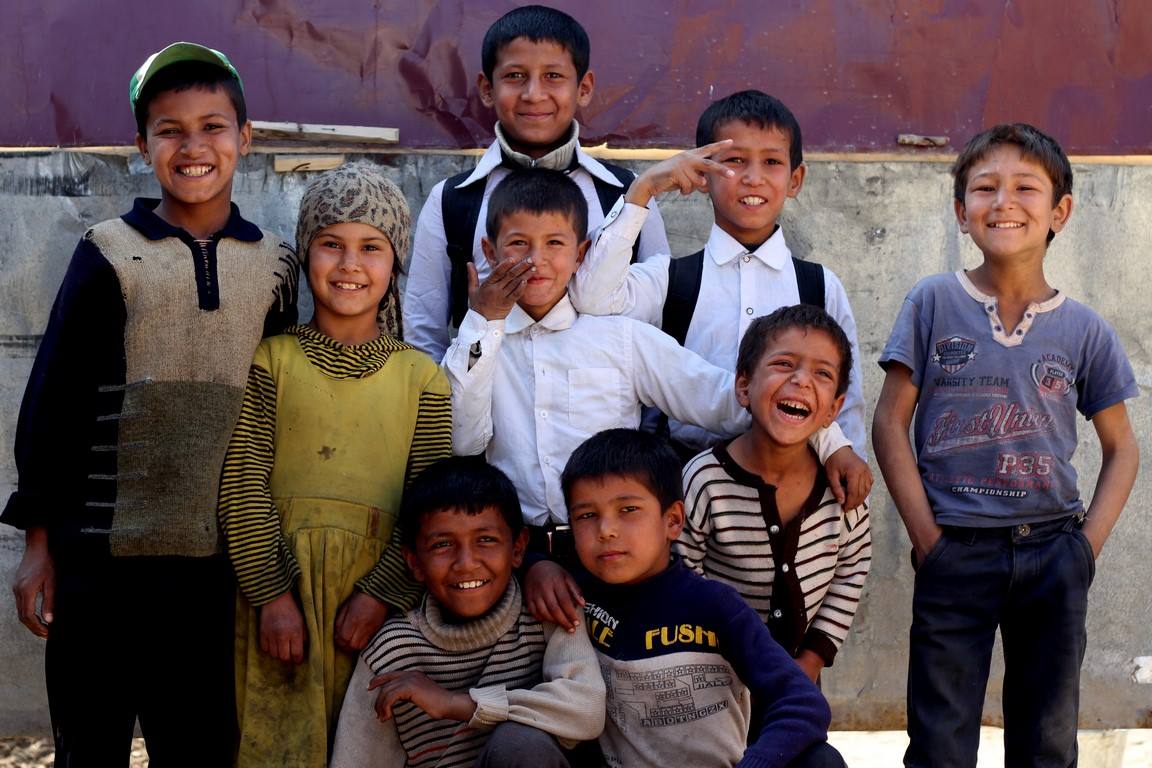
Bartek and Dorota, during their second meeting within Athropology Club, are going to try to reply to these and other questions. This lecture will be focused on the bitter sweet stories from various Lyuli mahallas in Kyrgyzstan and Tajikistan. How the Domari people live, work and party? How do they perceive themselves? How do they spend their free time and why don't they trust the outsiders?
Let's see how many stereotypes can we break and how many of them are going to persist'.
Dorota and Bartek are two independant researchers from Poland. Bartek gratuated from Russian Literature faculty and Dorota got her PhD based upon the dissertation in-between French Literature and Anthropology. They left Poland for a long time in May 2014 and since then they travel and work in Asia. They were recently teaching at Kasetsart University in Bangkok and International Binus University in Jakarta. Besides teaching and research projects, they are writers, journalists and cat lovers.
4 мая, 2016
«Общаясь на языке любви»: транснациональные браки в Центральной Азии

На данной встрече студенты курса «Глобализация, миграция и транснационализм» представят свои курсовые работы по теме трансанциональных браков, в которых один из супругов – из Центральной Азии, а второй – из любой другой части мира. Исследователи поделятся очень интересной и разнообразной коллекцией историй Центрально-Азиатских браков с гражданами США, Европы, Бразилии, Турции, Ирана и Кореи. Это истории того, как эти пары встретились, поженились и как они живут сегодня. Также презентаторы поделятся своими рассуждениями о том, что значит жить в транснациональном браке, в чем его преимущества и трудности, как в них воспитываются дети, как разрешаются различия в культуре, языке и религии, и что такие истории говорят нам о будущем мирового сообщества, которое становится все более мобильным и разнообразным.
27 апреля, 2016
Руслан Рахимов
“Дискурсы о “природе”: культурное наследие, туризм и национальные заповедники в Кыргызстане”
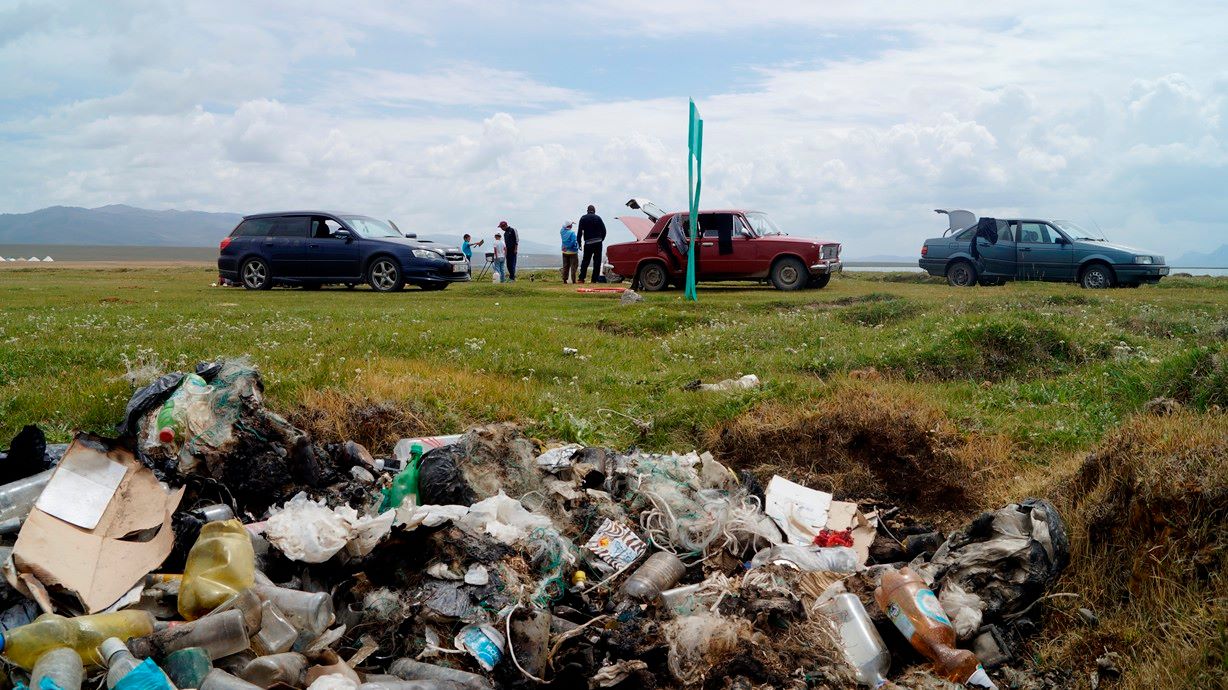
В этой презентации, я намерен проанализировать различные практики и дискурсы о «природе» и «окружаещей среде» с помощью различных случаев, как скотоводство и туризм на озере Сонг- Кель в Нарынской области. Туризм в постсоветском кыргызской экономики были всегда спорной темой, не только как экономический или политический вопрос на национальном уровне, но также символическом, на местном уровне. Как эти символические и экономическое "пространства" коррелируют с местными представлениями и скотоводческой практикой? В какой степени советское наследие играет роль? И какую роль скотоводческая культура играют в местном сопротивлении? Учитывая конфликты, в горнодобывающей отрасли, а также, в области загрязнения окружающей среды, я также попытаюсь проанализировать государственные концепции в области экологии.
БИО:
Руслан Рахимов получил степень доктора в Высшей Школе Социальных Наук (EHESS - Франция, программа "cotutelle") и кандидат исторических наук Национальной Академии КР. Он является доцентом программы антропологии АУЦА. Также являлся членом исследовательской группы международного проекта (CNRS-Франция) по теме: «Пасторальные общества в переходный период: пространство и местные власти». В рамках этого проекта, он проводил полевые исследования в Нигере, Кыргызстане и Казахстане. Он опубликовал работы по различным вопросы трансформации кыргызского и казахского пасторальных сообществ в советские времена, и его научные интересы кочевники и социализм, миграция и транснационализм в Центральной Азии, политическая антропология, культурное наследие.
20 апреля, 2016
Асель Долоткельдиева
"Анти-майнинговые активисты"и общественное мнение: (не-) формирование сопротивления против горнорудных проектов
Несмотря на то, что конфликты между иностранными инвесторами и "местными сообществами" продолжаются на протяжении многих лет и охватывают без исключения все области страны, у нас до сих пор не сложилось ясное представление об участниках этих конфликтов. Кто такие "местные акторы", которые говорят об экологических рисках и которые мобилизуют односельчан против горнодобывающих проектов даже на стадии разработки? СМИ, инвесторы и даже эксперты широко употребляют такие термины как криминал, "черные", местные элиты, и посредники для их обозначения. Что в конечном итоге еще больше мифизирует и даже демонизирует этих участников. Основываясь на этнографическом изучении одного конфликта (Таласская область), я попытаюсь показать амбивалетную "агентность" этих участников и их неоднозначное место в мозаике местной политики. Мне бы хотелось обратить внимание на их двойную повестку дня (власть и экология), их восприятия майнинговых проектов и их роль в формирования негативного мнения о проектах среди местных жителей. Однако их роль в формировании местного общественного мнения ограничена. Я покажу как общественное мнение работает в создании сопротивления или сотрудничества с инвесторами в определенной независимости от этих акторов.
Био: Асель защитила свою PhD диссертацию в Университете Эксетера (Великобритания). Ее диссертация посвящена изучению социальной мобилизации в сельском Кыргызстане. У Асель много статей опубликованных в рецензированных академических журналах, среди которых статья о горнодобывающей промышленности: «Государство как ресурс, медиатор, и исполнитель: местная и глобальная политика золотодобывающей промышленности в Кыргызстане» с Джоном Хэдершоу, Central Asian Survey, Vol. 34, Issue 1, March 2015
13 апреля, 2016
Пр. Руслан Рахимов
“Кактусы, ацтеки и Фрида Кало: культурное наследие в Мексике и параллели с Кыргызстаном”
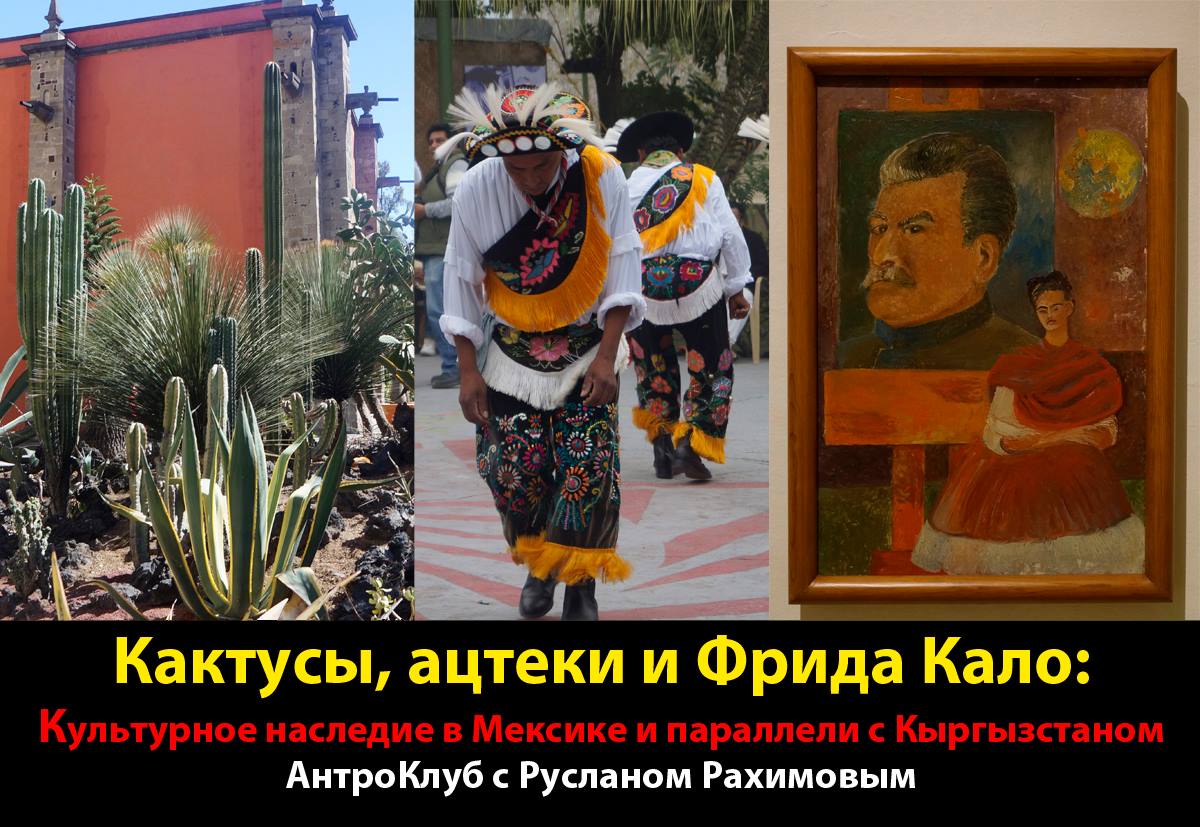
В рамках сравнительного проекта по культурному наследию, Руслан Рахимов имел возможность провести исследование в Мексике в марте 2016 года. Руслан поделится общими впечатлениями от своей поездки, предварительными результатами исследования и некоторыми теоретическими размышлениями. Мексика имеет очень долгую и интересную историю, которая служит основой для уникальной и многосложной современной мексиканской идентичности. Руслан попытается провести некоторые параллели с Кыргызстаном с целью переосмысления некоторых местных социально-исторических процессов.
Руслан Рахимов – доцент кафедры антропологии, АУЦА
Защитил свою PhD диссертацию в Высшей Школе Социальных Наук, Париж-Франция и в Кыргызской Академии Наук.
6-го апреля, 2016
Таалайбек Муратович Исаев
История Кыргызстана и современные технологии (посвящается Году культуры и истории КР)
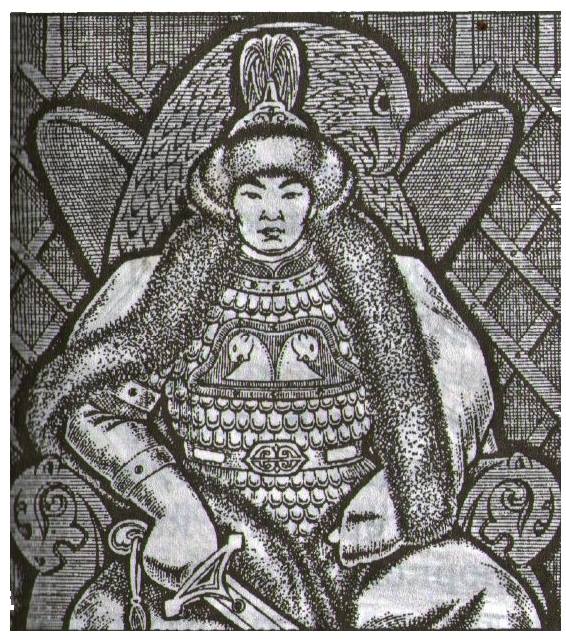
В своей презентации Таалайбек Исаев затронет следующие темы:
- Использование критического метода в изучении истории, на примере Барс-бека и государственных праздников Кыргызстана. Аудитории будет предоставлена возможность самим вычислить год гибели Барс-бека.
- Морально-экономическая стоимость некоторых праздников Кыргызстана.
- Знакомство с новым сайтом, где каждому кыргызстанцу предоставляется возможность самим писать историю своей семьи, населенного пункта и региона.
- Проект «Безопасный Кыргызстан».
Таалайбек Муратович является координатором волонтеров Фестиваля документальных фильмов по правам человека «Бир Дуйно» и преподавателем истории и экономики в средней школе №60 г. Бишкек.
1 апреля, 2016
Чолпон Чотаева
Презентация учебника по истории Кыргызстана для иностранных студентов
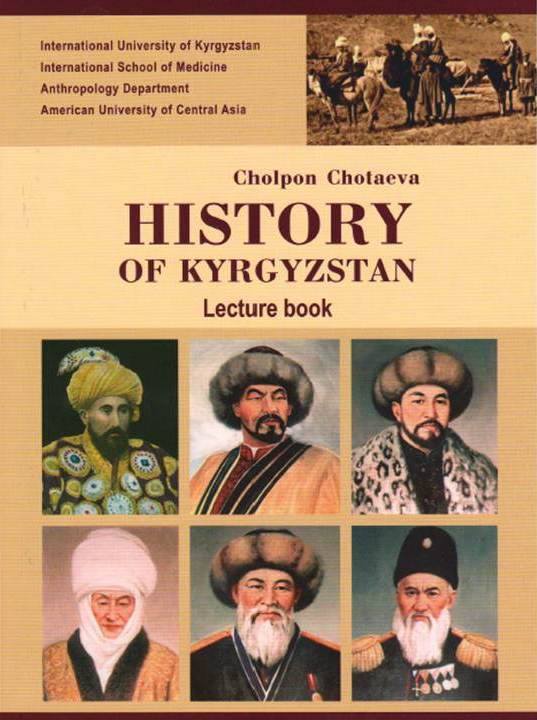
Как говорит Чолпон Чотаева, идея написания такого учебника возникла у нее несколько лет назад, когда она начала читать курс по истории Кыргызстана студентам АУЦА и не нашла полноценного учебника, где бы содержалась вся история КР, на английском языке.
Данный учебник адресован и будет полезен не только для иностранных студентов, которые приезжают учиться в Кыргызстан, но и для иностранных туристов в целом.
Иностранцы, по их признанию, постоянно сталкиваются с отсутствием полной и последовательной информации об истории нашей страны от древнейших времен до современности на английском языке.
Координатор программ антропологии и социологии и преподаватель Чолпон Чотаева решила устранить этот пробел, написав небольшой по объему, но емкий учебник, который уже получил положительные отклики от студентов и коллег.
9 марта, 2016
Эльмира Ногойбаева
Что хочет сказать местное сообщество? Факторы конфликтогенности и взаимодействия между инвестором и местными сообществами в горнодобывающей отрасли
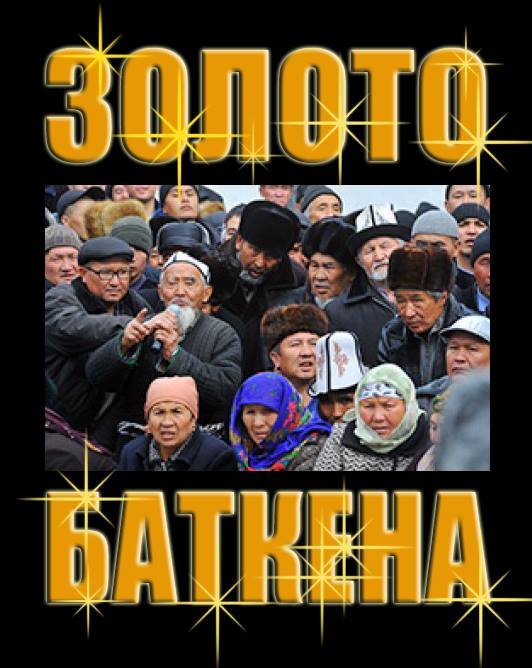
В своей презентации Эльмира Ногойбаева представит тезисы полевого исследования «Золото Баткена»: Социокультурные аспекты взаимодействия местных сообществ и инвесторов в КР.
Проблемы взаимодействия в области извлечения природных ресурсов наиболее актуальны сегодня для Кыргызстана. Три главных игрока этого процесса: местное сообщество, инвестор и государство часто не могу найти общий язык. Соответственно инвестиционный проект сворачивается, инвестор уходит из страны. Государство, местные сообщества ничего не получают.
Исследование попыталось ответить на вопрос – Что влияет на развитие инвестиционных проектов в области добычи природных ресурсов Кыргызстана? Точнее: Какие факторы конфликтогенности – препятствуют, и наоборот - какие факторы взаимодействия – способствуют?
Эльмира Ногойбаева - Директор аналитического центра «Полис Азия».
February 25, 2016
Professor Anne Pyburn
Archaeology and the Future of Science
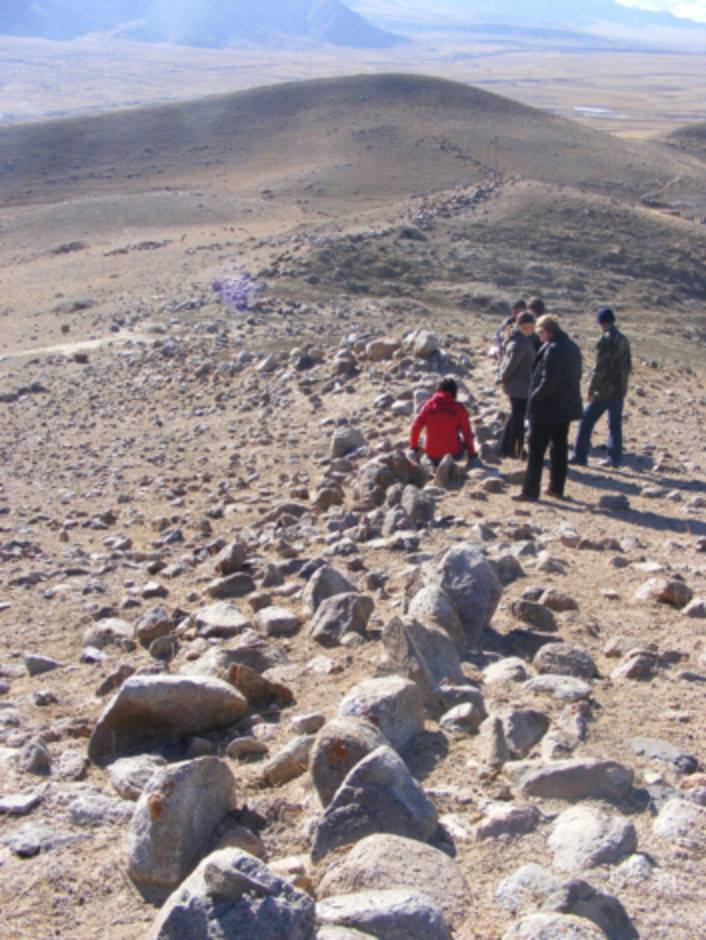
It has been almost 50 years since European and American scholars began insisting that archaeological research must become more scientific.
But while the new technologies and new information that followed made archaeologists ever more capable of practicing science, new participants in the field brought in new ideas that seemed to reject a scientific approach to understanding the past. Now that the fires of disagreement have been doused and the smoke cleared away, archaeologists have begun to realize that the science of archaeology has changed because science has changed. In this talk I will talk about these changes and how archaeology in Europe and America has come to be better science.
Bio
Pr. Pyburn has directed major excavations of three ancient Maya cities in Central America, where she discovered a previously unknown style of water conservation and irrigation technology, developed a new perspective on ancient political economy, and has proposed an alternative explanation for the Maya "collapse." Most recently she has collaborated with colleagues in Central Asia promoting grassroots development of projects for cultural preservation.
Through her work she has inspired students, introduced curricular reforms and promoted the rights of indigenous communities. Pyburn has conducted numerous archaeological field schools in Belize, where she emphasized collaboration with the local community in the context of rigorous scientific research. In Kyrgyzstan, she has worked with archaeologists and citizens' groups to develop projects for cultural resource management.
"Anne is a major international scholar and educator on the leading edge of archaeological and anthropological thought," said Catherine Tucker, chair of the Department of Anthropology. "Her energetic leadership has helped redefine archaeology as a discipline that involves living people as much as those of the past, one that empowers indigenous and minority populations to become active participants in interpreting their cultural heritage."
Pyburn has taught popular undergraduate courses on the scientific method, the ancient Maya and women in prehistory, as well as seminars on research methods, ethics and gender. She was principal investigator for the National Science Foundation-funded Making Archaeology Teaching Relevant to the XXI Century project, founded the Archaeology in Social Context Ph.D. program at IU and directs the Center for Archaeology in the Public Interest. She has chaired the Ethics Committee of the American Anthropological Association and is vice president-elect of the World Archaeological Congress. She has a Bachelor of Arts from Reed College and a Ph.D. from the University of Arizona.
February 17, 2016
Dr. Damira Umetbaeva
Negotiating Kyrgyz Nationhood: Of History Textbooks' and History Teachers' Attitudes towards the Soviet Past
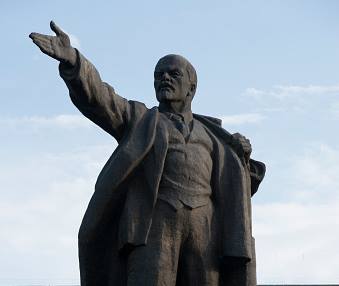
In my dissertation I analysed representations of Soviet socialism in post-Soviet history textbooks and in the life stories of history teachers in Kyrgyzstan. I analysed, first, how the post-Soviet Kyrgyz state reconstructs its Soviet past on the level of official discourse, particularly in school history textbooks, and second, how history teachers – as professionals and private citizens – relate to the official discourse when making sense of the Soviet past. Answers to these questions contribute to a better understanding of state- and nation-building processes in post- Soviet Kyrgyzstan both in terms of how official discourse is formed and how subjects and official discourse interact.
Based on the analysis of history textbooks, first, I argue that discourse about Soviet socialism in the post-Soviet Kyrgyz history textbooks is ambivalent and contradictory and there is not a new hegemonic discourse about the Soviet past. At the same time, I argue that there is a hegemonic discourse of the Kyrgyz nation-and-state and their modernization in the post-Soviet Kyrgyz history textbooks, which, however, is also ambivalent and contradictory.
I argue that history teachers like history textbooks produced ambivalent and contradictory images of the Soviet past. Moreover, I claim that they have appropriated the hegemonic discourse of the Kyrgyz nation-and-state and their modernization. However, due to the factors of nostalgia and status loss, self-justification or a particular way of appropriation of the official discourse they introduce internal displacements to the hegemonic discourse.
Short Biography
Damira Umetbaeva has defended her PhD dissertation in 2015 at the European University Viadrina in Frankfurt/Oder, Germany. From 2008 until 2012 she was a research fellow at the Georg-Eckert-Institute for International Textbook Research in Brunswick, Germany. At the institute she was embedded with her PhD project “Negotiating Kyrgyz Nationhood: Of History Textbooks’ and History Teachers’ Attitudes Towards the Soviet Past” in the bigger project funded by the Volkswagen Foundation and titled: “The Institutionalization of Cultural Models of Interpretation: History Teachers as Mediators between Collective and Individual Memory in Georgia, Kyrgyzstan, and Lithuania.”
Damira Umetbaeva has publications in peer-reviewed international academic journals, one of them winning Best Graduate Paper Award in 2014 from the Central Asia Program at the George Washington University, USA. Since January 2016 Damira Umetbaeva is an associate professor at the Journalism and Mass Communications Department of the American University of Central Asia. She is also a research consultant for several international organizations in Kyrgyzstan. Ms. Umetbaeva has launched new research projects on informal lending and inter-ethnic relations between Kyrgyz and Russians in Kyrgyzstan and in preparation of publications of the research results. Her main research interests include: Politics of Memory Practices, Textbook Research, Relationship between Education and Nation-State Building Processes, Discourse Theory and Methods, Oral History and Biographical Interviews, Anthropology of the State, Minorities and Economic Biographies.
February 3, 2016
Pr. Mukaram Toktogulova
Transmission of Islamic Knowledge in Kyrgyzstan: Continuities and Changes
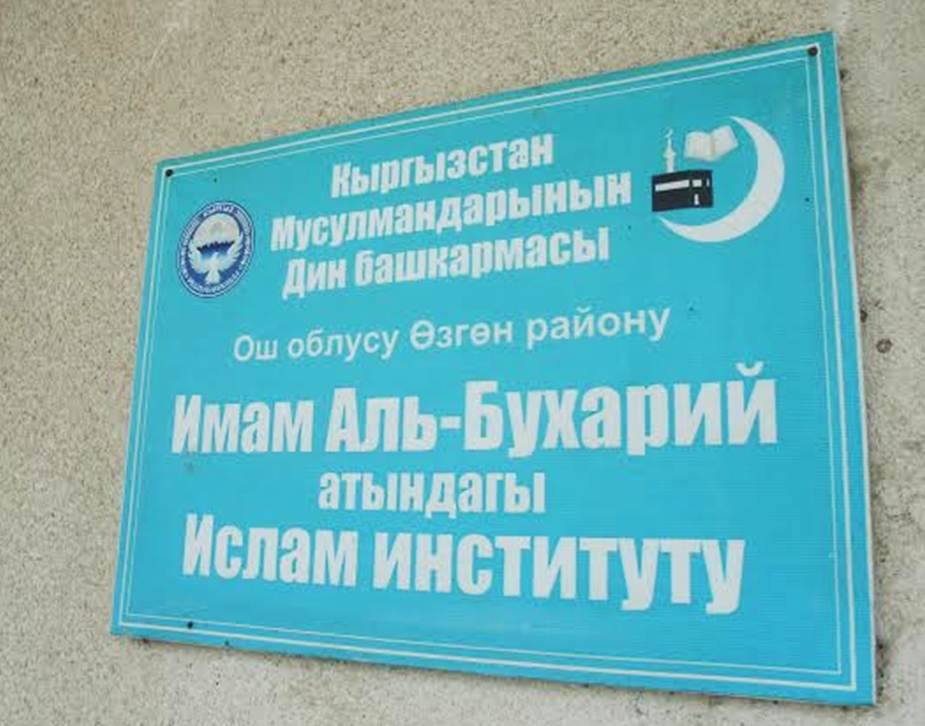
The paper discusses the development of Islamic Education in post-Soviet Kyrgyzstan. Taking as a starting point Ashirbek Muminov’s statement that “The system of Islamic Learning prevailing in CA was developed mainly during Timurid era (1370-1506), and it has presented until the present day with only insignificant modifications” (2010) , we will look how previous system is preserved and what was changed there through different “reformist” projects such as Development of New System of Islamic Education in Kyrgyzstan ( 2013), Development Concept ( 2013) Standartization of the Curriculum of Islamic Educational Institutions ( 2013)etc. In the presentation, special attention will be paid to the perception of and contribution to those reforms made by Islamic teachers. The presentation will be based on the fieldwork conducted in different regions of Kyrgyzstan between 2013-2015.
Bio: Toktogulova Mukaram is associate professor of AUCA. Teaches at Anthropology Deaprtment. Defended her dissertation in Philology in 2001, and received Kandidat Nauk degree. Currently works on her doctoral dissertation “ Islamic Education in post-Soviet Kyrgyzstan: contested discourses”, which is co-supervised by KNU, Bishkek and EHESS, Paris.
January 27, 2016
Dorota Nowak-Baranowska & Bartek Baranowski
Luli in Central Asia
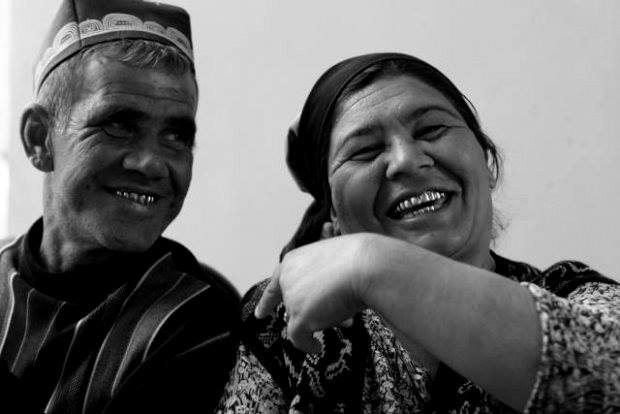
Central Asian Gypsies represent a group set apart from the others. The essential difference concerns their nomadic lifestyle – the status quo that persisted until 1922. Since the World War II, soviet authorities have undertaken many attempts to assimilate those Gypsies but with no results. Once again this situation took place after 1989 when, in a great chaos and rush, post-soviet republics were being created. In this new, post-soviet reality, Luli, again, ended up being stigmatised by mainstream society. All in all, after long-term repressions over the years, directed against their ethnicity, political actions destinated to create homo sovieticus and falling by the wayside in view of forming brand new „states”, Asian Gypsies Luli are deprived of explicit features of their identity. This study aims to investigate and understand the identity based on (forced) nomadism, hostility from authorities and society and various influences of national (and soviet), non-gypsy, culture, customs and traditions.
Dorota and Bartek are two independant researchers from Poland. Bartek gratuated from Russian Literature faculty and Dorota got her PhD based upon the dissertation in-between French Literature and Anthropology. They left Poland for a long time in May 2014 and since then they travel and work in Asia. They were recently teaching at Kasetsart University in Bangkok and International Binus University in Jakarta. Besides teaching and research projects, they are writers, journalists and cat lovers.
20 января, 2016
Айкол Болотбекова
Практика Ислама в современном Кыргызстане
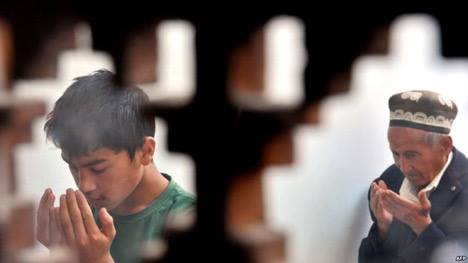
Хоть и ислам является доминирующей религией в Кыргызстане, ее практика вызывает большие споры и разногласия в обществе. С одной стороны исламу противостоят искаженное понятие светскости, различные доисламские верования, сохранившиеся в практике кыргызов и советское понимание роли и целей ислама. С другой стороны исламу угрожают религиозные экстремистские идеологии, как импортированные извне, так и возникшие в результате внутренних соцаильно-политических факторов. Таким образом, Кыргызстан представляет собой пример противостояния исламу самими же мусульманами. В этой работе мы рассмотрим динамику развития ислама в Кыргызстане и трудности сопутствующие выражению своей исламской идентичности.
Био:
В 2011 году Айкол Болотбекова окночила факультет Востоковедения, отделение международной журналистики Кыргызско–Иранского научно–образовательного центра при КНУ, специализировалась на персидском языке. После учебы два года проработала корреспондентом на сайте kloop.kg. В 2013 году продолжила магистратуру в отделении Исламской цивилизации и современной политики Университета Бруней Даруссалам. Тема исследовательской работы: «The Role of Mass Media in Da‘wah: A Case Study of Post-Soviet Kyrgyzstan» (Пост-советский Кыргызстан: роль СМИ в даавате (призыве к исламу)»
December 9, 2015
Yuri Boyanin
Life in a Post-Utopian Landscape: Searching for the meaningful, photographable, sublime in the most desolate of places, Balykchy, Kyrgyzstan
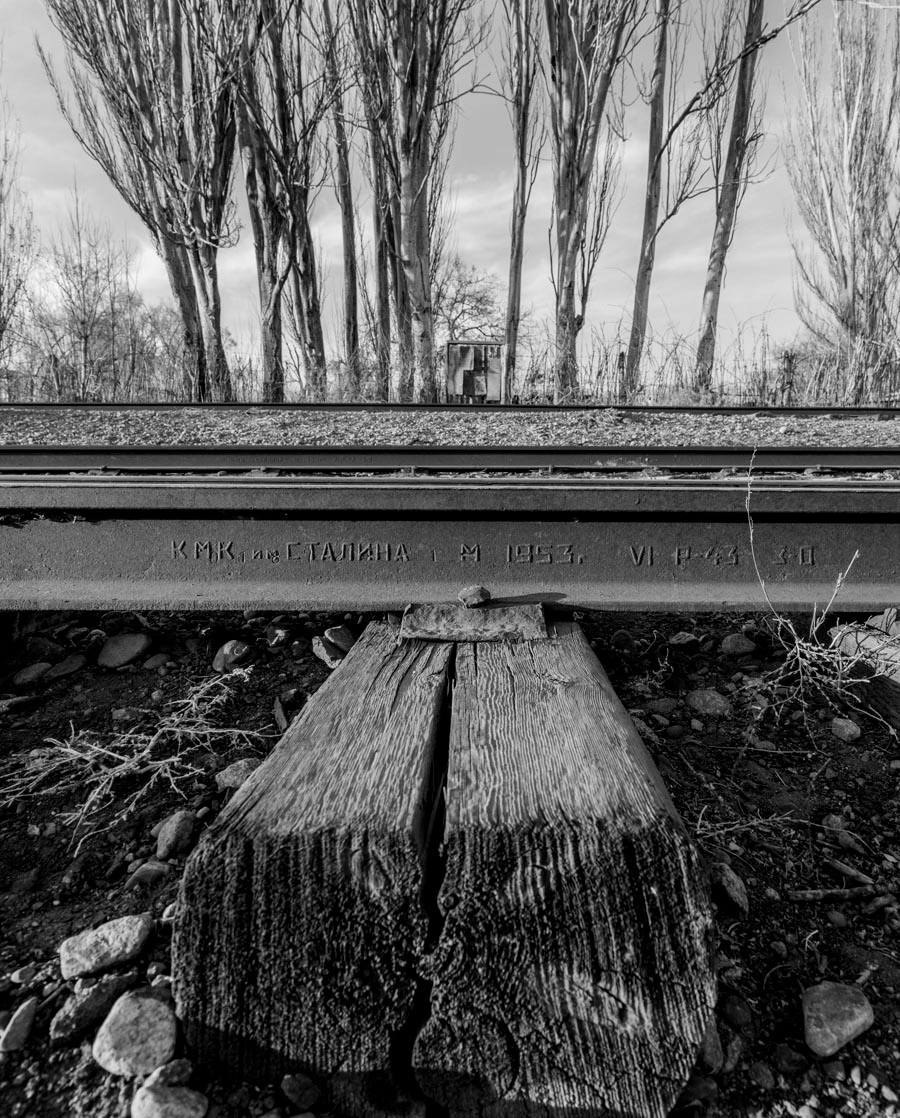
A once proud, busy industrial settlement, today Balykchy is a place of rowdy characters, strangers in their own landscape; silence and nostalgia; a broken communist utopia. In this study, historian Yuri Boyanin uses photography and sound in the search of a distinct Kyrgyz experience of communism and post-communism. This is, however, not merely a chronicle of destruction and the meaninglessness that followed. It is an acoustic archaeology of sound that once both repressed and empowered; a search, through thae camera lens and microphone, of a troubled, ruined landscape of factories and industries people once built with their bare hands. This study joins multi-disciplinary conversations - artistic and scholarly - of the utopia in ruins.
Yuri Boyanin is a Bulgarian PhD student of history at La Trobe University, Australia. His field of research is the 1930s Kyrgyzstan. His interests include ethnography, photography, sound. In his work he is trying to tear down old colonial walls and bring together academic disciplines. Yuri has travelled to 104 countries, including all former Soviet republics. He longs to go back to Mongolia, Pakistan and India, and not least Kyrgyzstan, where part of his heart is.
November 25, 2017
Daler Kaziev
Behind the Teresken Syndrome: Impact of economic transition into the Social Organization of Tersken Gatherers, Eastern Pamirs, Tajikistan
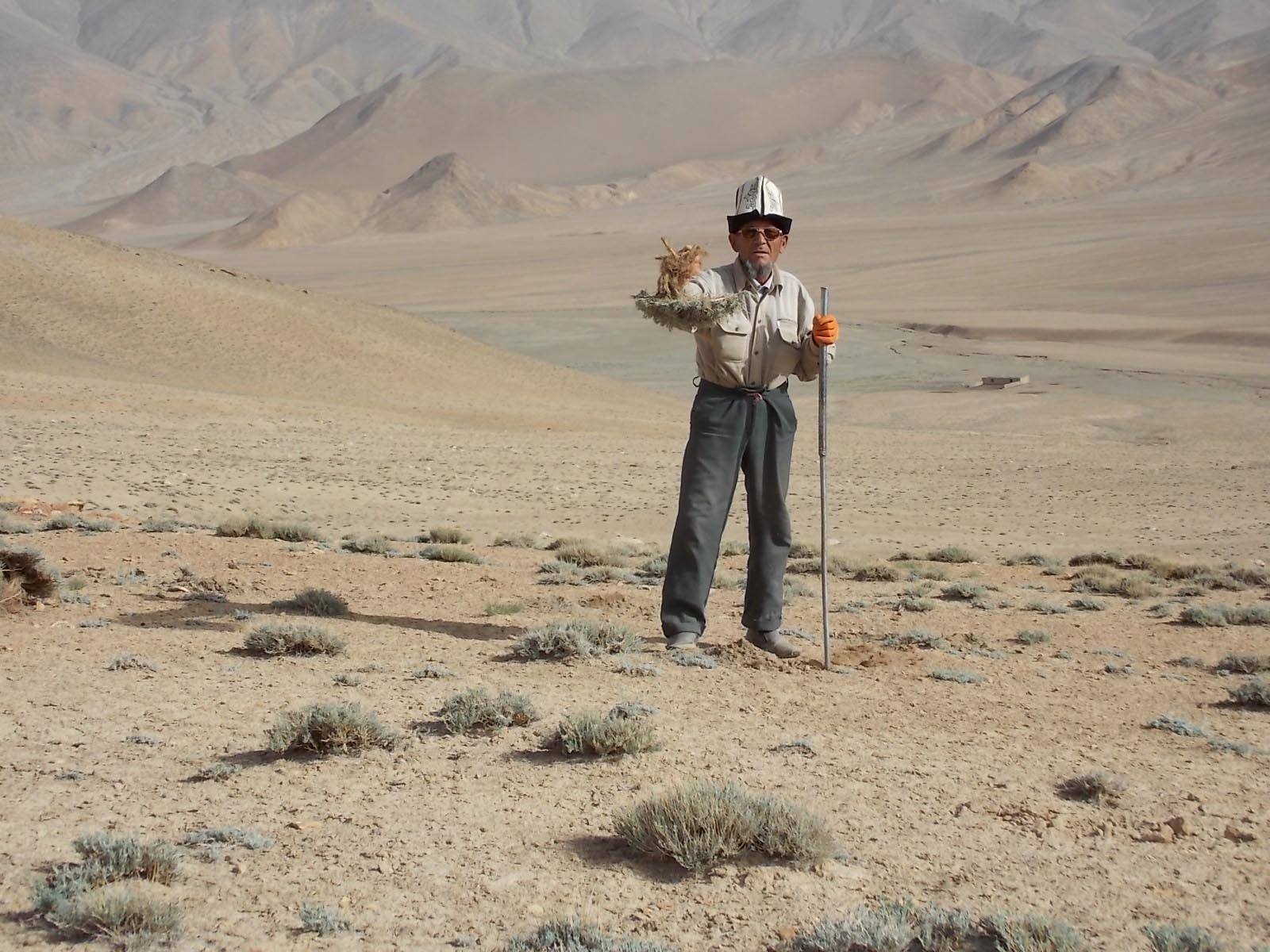
The Eastern Pamir region, Tajikistan, is a semi-deserts biome and lacks forests. Mostly occupied by Kyrgyz people, local habitants experience currently heavy dependency on natural resources. When the Soviet Union broke apart, political and socio-economical frameworks had, as for many other places, changed and state provisonning ceased abruptely. During the Soviet era, energy demands were supported by the State through imported coal, diesel generators and mini hydro power station. After the collapse, the energy supply has among others stopped. On individual and collective basis, locals started collecting plants in the region, tersken (Krascheninnikovia ceratoides) and shybak (Artemisia), in order to heat their houses and cook. . Thus, Murgabians have been sustaining their life only through this process. The problem was designed by some scholars as “teresken syndrome” (Breckle and Wucherer 2006). Kraudzun, Tobias, Kim André Vanselow, Cyrus Samimi 2014. Realities and myths of the Teresken Syndrome – An evaluation of the exploitation of dwarf shrub resources in the Eastern Pamirs of Tajikistan. Journal of Environmental Management 132:49-59.
In this regard, I ask: Where there historical antecedents to the collecting practice? How is collecting organized and socially valuated? What are locals’ points of view toward energy issues? How is the problem addressed from experts on local knowledge? Is there any improvement scheme that could be proposed by convening local practices with state of the arts knowledge on environmental issues?
The aim of the research is to understand how interaction system of harvesters (terskenchiler) function, why they are “certain” regarding the sustainability future of energy supply and how experience or strong believes or local knowledge effect their “perceived” suitability of the energy supply. This would show, in general, what the harvesters really think about their energy resources, and help us to understand the unending energy fight process in Eastern Pamir in the context of pre-soviet, during soviet, and independence periods. Especially, how the socio-economic changes during the independence period effected the harvester and why the social systems emerged and its relations to the past life. Lastly, how the Tajikistan’s transition to market economy is effecting the plan vegetation and local harvesters?
Daler Kaziev is a student at the Environmental Management and Sustainable Development (EMSD) Program, American University of Central Asia (AUCA) E-mail: kaziev_d@auca.kg. Daler is passionate about Anthropology, particularly in relation to ecology and resources. His main research field is Pamir.
November 18, 2015
Nurzat Sultanalieva
Changing sacred landscapes of the Issyk-Kul lake in Kyrgyzstan: dynamics of perception of sacred, healing and lived water
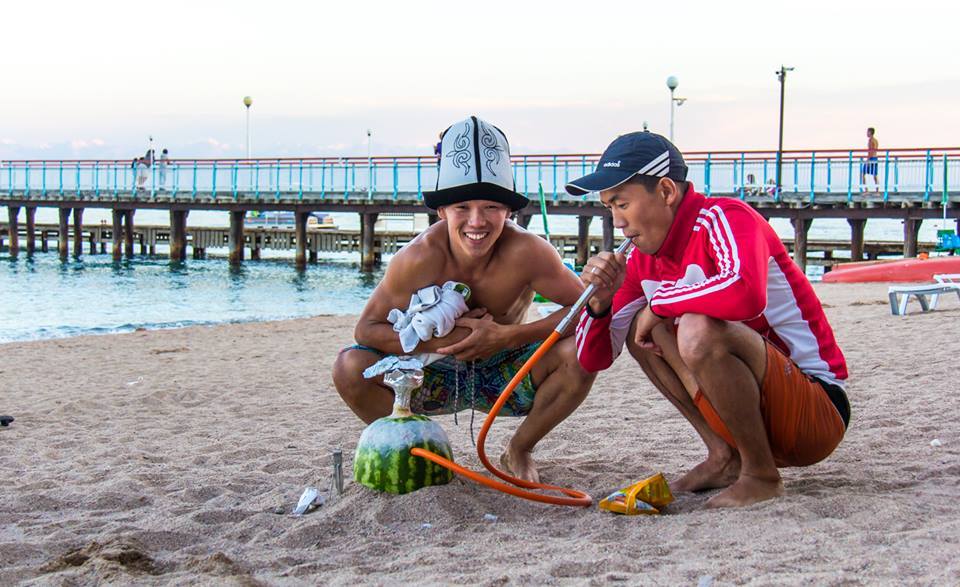
The Issyk-Kul lake being a part of the landscape participates in material interrelations and processes, but also represents the semiotic side of relations. This interdisciplinary approach takes us to the conception of “space” as well as the interaction between the material and immaterial worlds of actor-network theory. As a point of descriptive departure, I will advance on the role of material objects around water bodies, i.e. sanatoriums or tanks and ask: how the physical space comes into cooperation with social and political actions? How place making becomes the triggering factor for changing perceptions of the lake and water use in the region? How did the changing landscape and new infrastructure shape the attitudes of people towards the Issyk-Kul Lake? How do people cooperate with the lake and with water in the region? How do people live by the lake and water? What practices do people do with water?
My research project is therefore contributing to the issue of exploring interrelations of socio-cultural dynamics that arise around the contested sacredness of the Issyk-Kul lake, and the economic value it brings to people living in Cholpon-Ata and Jeti-Oguz.
Nurzat has graduated from Anthropology department in AUCA in 2005, and continued her studies in Central European University. After completion of her MA and teaching at AUCA for 3 years she is currently doing her PhD at the University of Tuebingen.
November 11, 2015
Angie Popova
Technology and learning: the case of podcasts
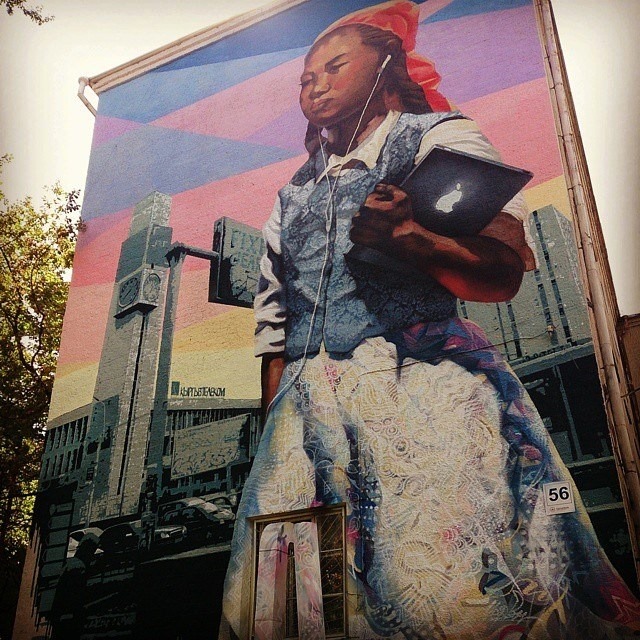
As teachers, we sometimes face silent classrooms; students who do not understand simple concepts; do not ask any questions and do not seem to bring any interest to what we are so hard trying to teach. There are many different ways to address such issues, and this lecture will discuss one in particular.
Angie Popova will present the findings of her PhD research in educational technology. Her lecture will discuss some of the fundamental principles of learning and point out at how taking these into account when designing lectures, can affect students’ learning. In her PhD research Angie used podcasts to study whether and how this technology can enhance students learning from lectures. The findings of the research inform on pedagogically and technologically sound approaches to enhance learning from lectures.
November 4th, 2015
Nurbek Bekmurzaev
Independent and Official Islam in Central Asia: Reasons Behind Islamic Religious Leaders’ Resistance and Loyalty Towards The State Control of Religion in Kyrgyzstan
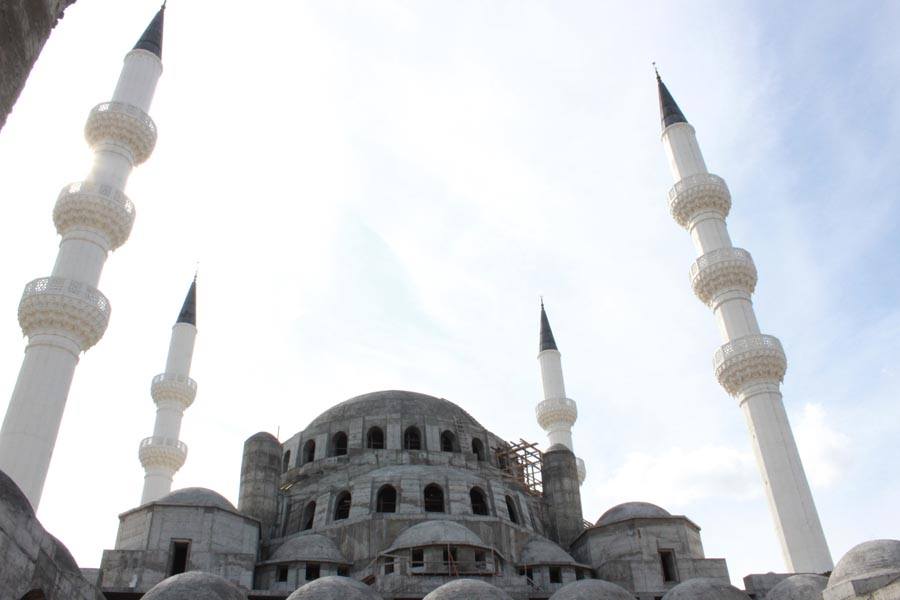
Despite the vast amount of research conducted by scholars from different disciplines on Islam in Central Asia, reasons behind the emergence of independent Islamic leaders have remained a largely untapped source for studying reasons for tension between state and religion in secular countries. Scholars have focused on radical and political manifestations of Islam. This study provides a different perspective on Islam in Central Asia by exploring factors for official imams to pledge loyalty to the state and reasons for independent imams to contest the state control and definition of Islam in Kyrgyzstan. It reveals how and why Islamic religious leaders either cooperate with the state or resist the control it exerts over Muslim population. The case studies of two imams from Kara Suu are explored in the study. The analysis of their stories focuses on their education, life experiences, features of the town they lived and worked in, political and economic situation in the country, retaining of material assets, and their personalities.
Short Biography
Nurbek Bekmurzaev is an independent researcher based in Bishkek, Kyrgyzstan. He holds an MA Degree in Politics and Security (Central Asia) Program from the OSCE Academy in Bishkek.
Nurbek has an extensive experience of conducting research on topics related to state policy toward Islam in Central Asia, conflict prevention mechanisms, religious radicalism, and ethnic violence. He has published a series of articles on factors of religious radicalism in Central Asia.
28 октября, 2015
Айкокуль Арзиева
ГОРОДСКАЯ СВАЛКА: новое восприятие проблемы мусора и работников свалки
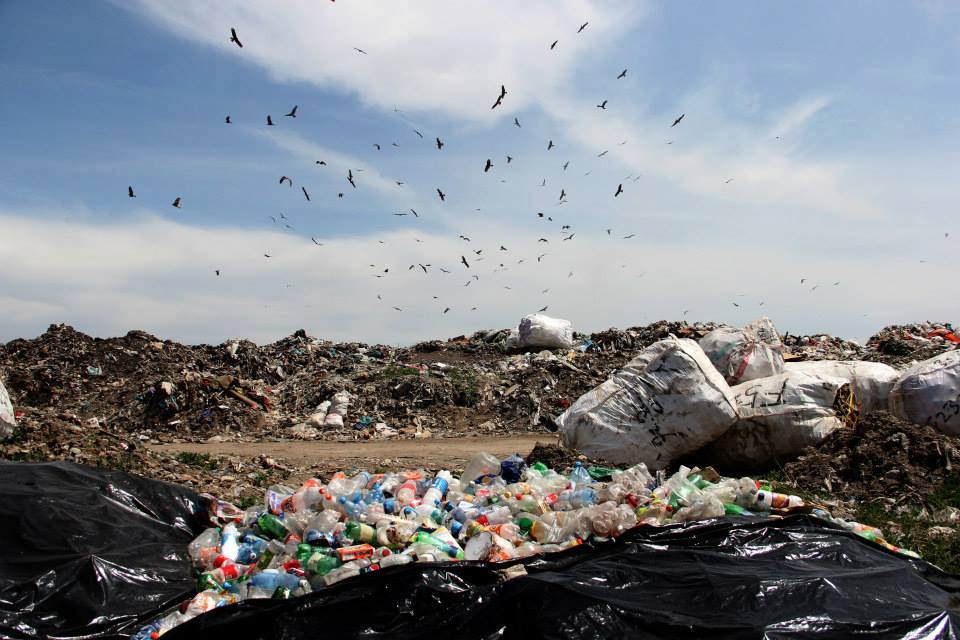
Более 15 миллионов человек по всему миру живут на средства от сбора, сортировки, и переработки материалов, которые были выброшены кем-то другим. Во многих странах ручной сбор и сортировка мусора неформальными сборщиками представляют единственную форму управления твердыми бытовыми отходами. Несмотря на вклад, который они делают в управление отходами, сборщики мусора имеют низкий социальный статус, сталкиваются с притеснениями со стороны посредников и властей, зарабатывают намного меньше других участников неформальной мусорной экономики. Этот неформальный сектор в последнее время изучается, в основном, консультантами «проектов развития», чьи выводы можно обобщить так: 1) сборщики мусора бедны и уязвимы, 2) расширение их прав и возможностей через формализацию и нормализацию приведет к повышению их доходов и признанию, 3) поддержка и интеграция ручного труда сборщиков являются средством достижения устойчивого развития в развивающихся странах.
С недавних пор мусорный полигон в Бишкеке тоже стал объектом «реформирования». В планах городских властей по модернизации системы управления отходами – рекультивация свалки (которая сейчас занимает около 27 гектаров, и находится в 10 км к северу от города). Полигон первоначально привлек внимание международных организаций как угроза окружающей среде, но экология - это лишь одна сторона вопроса. Свалка стала местом, где живут и работают внутренние мигранты, приехавшие в город в поисках заработка в 1990-е, в надежде наладить жизнь и приспособиться к новой экономической реальности. В разное время года, на свалке работает от 150 до 300 человек. Этнографическое исследование, проведенное Айкокуль в 2013 году, показало, что восприятие ситуации в рамках дискурса «развития» не соответствует реальной жизни сборщиков мусора. Более того, представления о «бедности» и «уязвимости» людей со свалки, оказались под вопросом, равно как и смысл деятельности по достижению «устойчивого развития».
На встрече Айкокуль представит результаты своих исследований 2011 и 2013 года, после чего мы обсудим:
• как по-разному можно относиться к «жизни на свалке»,
• как представляют жизнь в городе работники свалки,
• что происходит в других «развивающихся» странах и городах в отношении отходов и сборщиков мусора,
• какие существуют практики «нормализации» и «формализации» работы сборщиков мусора зарубежом и насколько они применимы в контексте Бишкека,
• и, наконец, о том, существует ли проблема вообще? Или нам достаточно взглянуть на «возможность» превращения мусора в ресурс? (новые подходы).
О докладчике: Айкокуль Арзиева – социолог, получила степень магистра по направлению «Социальная антропология» в Центральном Европейском Университете (Будапешт) в 2013 г, специализируется по городских исследованиях. В настоящее время преподает социологию в АУЦА. В сфере ее интересов – исследования представлений о «лучшей жизни», а также новых способов существования в условиях социально-экономических и экологических проблем.
В обсуждении также примут участие социологи, экологи, гражданские активисты, социальные работники, представители городских властей. Мы приглашаем всех неравнодушных к этой проблеме горожан присоединиться к «разговору».
14 октября, 2015
Раушанна Саркеева
Районные библиотеки как новые общественные пространства

В Бишкеке 28 муниципальных библиотек – это целая сеть, охватывающая больше половины районов города. Речь идет не о центральных библиотеках (библиотека имени Баялинова, Национальная библиотека), которые находятся в хорошем состоянии и достаточно популярны, а именно о районных. Они финансируются из городского бюджета, и на сегодняшний день немногие горожане знают об их существовании, и еще меньше – пользуются их услугами. Потенциал сети библиотек сейчас используется не полностью, и в постоянно меняющейся городской среде библиотекам необходимо понять, для кого и для чего они существуют, и найти новую модель работы.
Мы предлагаем посмотреть на библиотеки в контексте развития города, новых технологий, городской культуры и потребностей горожан. Обсуждение будет посвящено вопросам:
- каково место библиотек в городе?
- для кого работают библиотеки?
- какие изменения нужны в работе библиотек, и всей системы?
- могут ли библиотеки стать новыми общественными пространствами?
На встрече Раушанна Саркеева («Городские инициативы») и Эмиль Насритдинов (Факультет Антропологии АУЦА) представят результаты исследования, которое дает оценку текущего состояния библиотек, их посещаемости и потенциала для изменения модели работы библиотек. Исследование проводилось фондом «Городские инициативы» совместно с Факультетом Антропологии АУЦА и Лабораторией ГИС Университета Центральной Азии, при поддержке мэрии.
После презентации, состоится обсуждение с участием библиотекарей, антропологов, архитекторов, активных горожан и представителей мэрии города Бишкек.
Организаторы: ОФ "Городские инициативы", Антропологический клуб и Библиотека АУЦА.
Время, место: 14 октября, 17:30 , новый кампус АУЦА ( 12 микрорайон), кабинет 330, 3 этаж.
Контакты для СМИ и участников:
Айканыш Дербишева, aikanysh@urban.kg (0555) 222 752
Раушанна Саркеева, raushanna@urban.kg. (0771) 560 113
Городские разговоры -это неформальная площадка для обсуждения актуальных вопросов городского развития и мировых тенденций в сфере урбанистики. Первые мероприятия прошли в Бишкеке в 2013 году по инициативе Бишкекского Городского Кенеша, сейчас площадка работает в рамках Бишкек Урбан Форума и поддерживается Фондом “Сорос-Кыргызстан”. Подробную информацию и календарь встреч можно посмотреть на сайте — www.urban.kg
September 23, 2015
Ani Shahinyan (discussion moderated by Angelina Popova)
Organization of Education of Intellectual Property in The Development of Knowledge-Based Economy
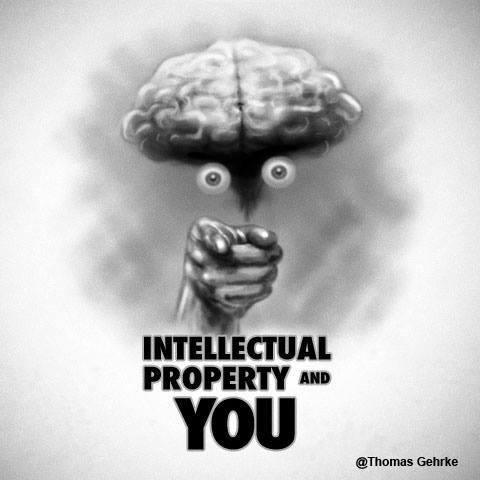
The protection of Intellectual Property (IP) rights is a core roadblock and a prerequisite for the development of knowledge-based economy of any country. Higher education institutions which bear the great responsibility in managing and organizing education on protection of IP (copyright, academic honesty and respective issues) face some generic challenges, such as: development of policies, procedures and/or regulations of IP; prevention of violation of copyright such as plagiarism and academic honesty, etc.
The PhD research of Ani Shahinyan looks into IP policies at state and university level, existing practices, courses, programs which inform the implementation of Intellectual property rights, and related problems and challenges.
Ani’s visit to AUCA matches existing processes at AUCA of improving academic honesty, copyright issues, and Intellectual Property. As a higher-education institution, we care of educating young people to move forward a knowledge-based economy, to be good citizens, as well as we try to stimulate their creativity and intellectual potential. At the same time, we need to foster the same attitudes in our staff. A discussion on Intellectual property rights is timely and necessary. Your contribution to it will be invaluable.
Ani Shahinyan is Coordinator at the Centre for Quality Assurance; Yerevan State Linguistic University after V. Brusov, Republic of Armenia. She has worked as a Coordinator of The Professional Development and Training Programme, at her home university, where she is currently PhD Student at the Department of Education Management and Planning.
16 сентября, 2015
Эмиль Насритдинов, Раушанна Саркеева
Об экономических преимуществах демократии: Роль денежных переводов мигрантов в развитии строительного сектора в Кыргызстане и Таджикистане

Данное исследование анализирует роль денежных переводов Кыргызских и Таджикских трудовых мигрантов в России в развитии строительного сектора в Кыргызстане и Таджикистане. Вопрос рассматривается в трех сферах: 1) как столицы (Бишкек и Душанбе) растут в высоту - многоэтажное жилое строительство, 2) как столицы растут в ширину – за счет новостроек и махаллей, и 3) как строятся дома в сельских регионах. Исследование выявило много сходства в двух странах, и в то же время много различий, объясняемых с политической, экономической и социально-культурной позиций. Главный вывод: природа политического режима играет большую роль в экономическом развитии как городских, так и сельских регионов. Презентация включит в себя аналитические карты, фотографии, статистику и жизненные истории мигрантов.
Спикер: Эмиль Насритдинов, PhD, доцент кафедры антропологии АУЦА. Исследование проводилось при поддержке DFID, UK.
В завершении выступления, Раушанна Саркеева (ОФ Городские Инициативы) предлагает провести дискуссию с посетителями по следующим вопросам: Кто же будет жить во множестве строящихся домов в Бишкеке и кому они по карманам? Насколько экономическое благополучие мигрантов отражается на строительном секторе в целом? Раушанна предлагает посмотреть на развитие города с позиции результатов исследования и попытаться понять, как ситуация с мигрантами в целом скажется на наших городах и регионах.
September 10, 2015
Dr. Julie McBrien
Problematic Marriages in Kyrgyzstan

How do men and women in Kyrgyzstan contract a marriage? Does the way a marriage is contracted say anything about the long-term viability of the marriage or the happiness of the bride, groom, and their families? And, how and by whom are these various forms of marriage evaluated? In this talk, McBrien will discuss the research she is currently carrying out in Kyrgyzstan on ‘problematic marriages’, a study embedded in a wider ERC funded research project she co-directs at the University of Amsterdam called ‘Problematizing Muslim Marriages’.
In contemporary Kyrgyzstan, at least four forms of concluding a marriage are taken to be problematic – bride abduction, ‘nike’ marriages, polygamous marriages, and rather recently marriages between Kyrgyz and non-Kyrgyz. In addition, the rising costs of the most acceptable mode of marriage, and the lengths some are willing to go to finance these, are viewed as troublesome for many. These ways of getting married are matters of concern for the bride, groom, and direct families involved; they are likewise contested by local publics (e.g. wider kin, networks of sociability, village/town residents, etc.), those who would speak for ‘the nation’ and, at least in the case of bride abduction, international governments and non-governmental agencies. Yet there is a significant difference in what is perceived of as problematic for the various actors involved in debating these marriages forms. For example, the frustrations of a young women’s parents over her abduction may reside in their inappropriateness of the match while an NGO involved in securing the bride’s autonomous rights might be at the base of their concern. This research aims to understand and identify what matters of concern these marriages materialize for the various actors who see and create them as problematic. It aims to read the diverging matters of concern in light of one another but also, importantly, against the short/mid-term trajectories of marriages concluded in these ways. In this way it will investigate whether and how problematic issues identified in the form of marriage conclusion continue to play out in the mid-range run of the marriage.
Dr. Julie McBrien is Assistant Professor of Anthropology at the University of Amsterdam and co-directs the ERC funded research project ‘Problematizing Muslims Marriages’, based at the UvA’s AISSR. She has conducted multiple research projects in Kyrgyzstan including work on Islam and politics. Her work can be found in journals like JRAI, Material Religion, Anthropology Today and Critique of Anthropology. She teaches anthropological courses on religion, methods, and general theory.
September 2, 2015
Yanti Hoelzchen
Ritual Economy of madrasas in Northern Kyrgyzstan
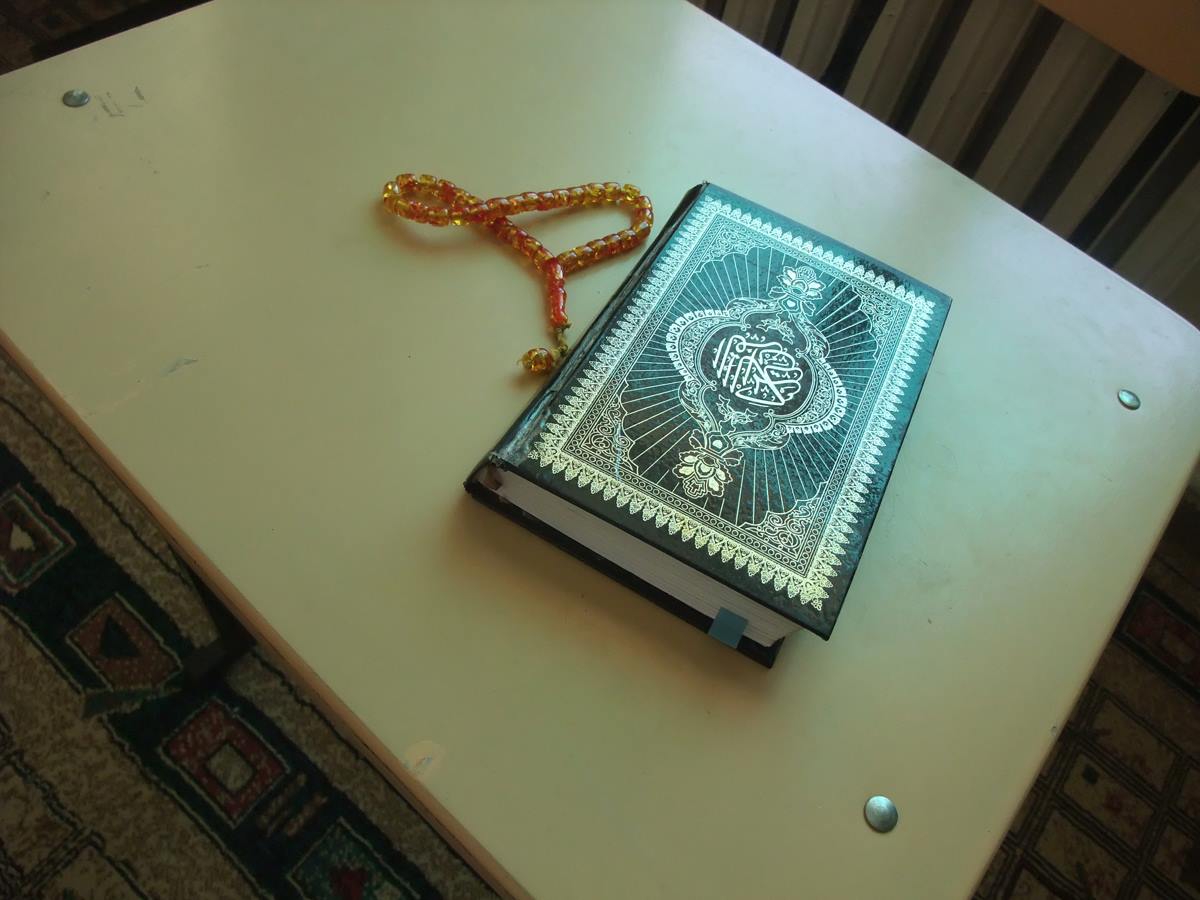
With its independence in 1991, Kyrgyzstan has experienced a great increase in religious communities and institutions. In her current PhD research Yanti Hoelzchen addresses the increase of Islamic institutions (i.e. mosques, madrasas and Islamic NGOs) and looks into the ways how these actively promote religious knowledge.
In her talk, Yanti will introduce data she has collected on madrasas throughout northern Kyrgyzstan during her field research in spring/summer 2014 and 2015. She will introduce the general workings and features of the madrasas she visited, and further frame her analysis within a “ritual economy” approach. This perspective helps to show how madrasas can be understood as materialized forms of worldview (Wells and McAnany 2008), and how economic and religious activities are inherently intertwined within these institutions for religious education. Furthermore, a ritual economy perspective illustrates how madrasas in northern Kyrgyzstan are imbedded not only within their local contexts, but stretch out their connections to broader networks on regional, national and global level.
Yanti Hoelzchen has studied Social and Cultural Anthropology at Tuebingen University (Germany). Since October 2013 she is a PhD candidate at the interdisciplinary Collaborative Research Center 1070 “ResourceCultures” (funded by the German Research Foundation (DFG)).
Based on the Research Center’s aim of understanding and re-conceptualizing “resources” in regard to their social and cultural meanings, Yanti’s PhD project “Religious resources: achieving and converting resources in Central Asia - Kyrgyzstan's new mosques." explores (1) both the material and immaterial means that are required, acquired and transformed in order to establish and maintain institutions such as mosques and madrasas; and (2) looks at the socio-cultural dynamics that result from this engagement with these specific material and immaterial means.
